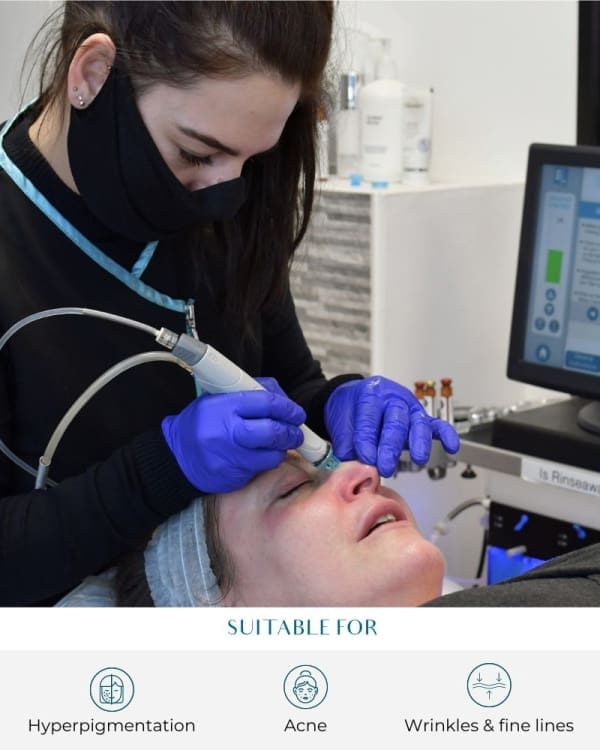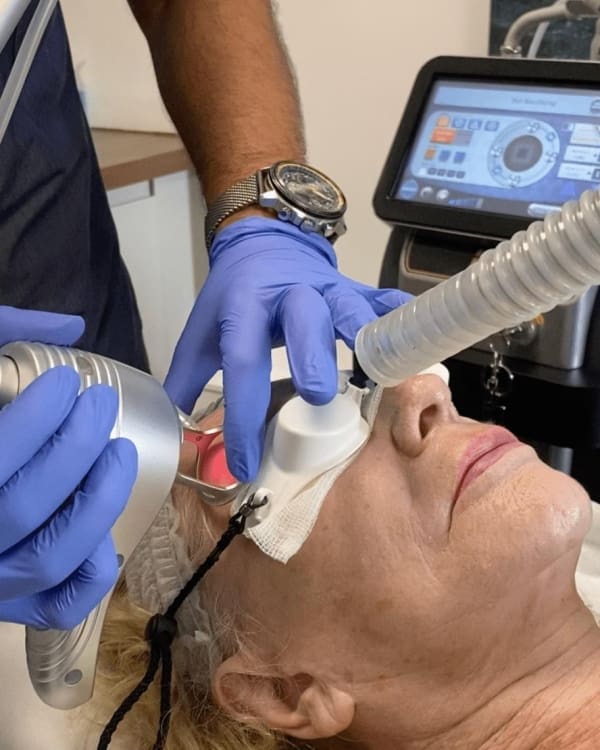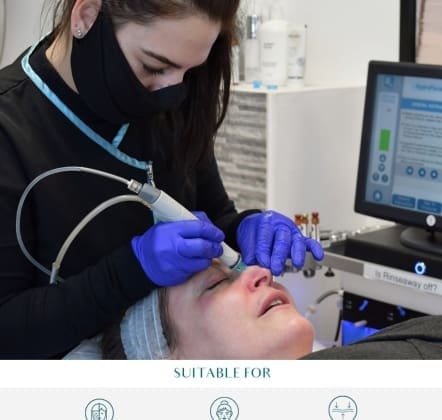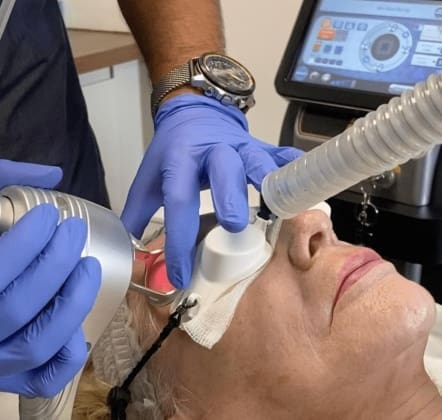
body Treatment
Folate and B12 Blood Test
Do you know that a lack of vitamin B12 or folate, commonly called folate (vitamin B9), in your diet—or problems absorbing them—can lead to anaemia, neurological problems, and pregnancy complications? A Folate and B12 Blood Test at Perfect Skin Solutions helps you take control of your health by identifying potential vitamin deficiencies and guiding your next steps. What is a Folate and Vitamin B12 Blood Test? A Folate and B12 Blood Test measures the levels of these two essential vitamins in your blood. Both folate (also called vitamin B9) and vitamin B12 perform several crucial functions in the body, particularly in maintaining neurological health, supporting the function of your brain and spinal cord, and aiding in the production of healthy red blood cells. This test is used to detect deficiency and help explain symptoms like extreme tiredness, weakness, or neurological symptoms. A deficiency in these vitamins affects the body's ability to produce healthy red blood cells, which can lead to anemia and neurological symptoms.
Causes of Deficiency
Folate deficiency anaemia and vitamin B12 deficiency anaemia occur when your body cannot produce enough healthy red blood cells due to a lack of these essential vitamins. This type of deficiency anaemia can develop for several reasons, often depending on how much dietary folate you consume, how well your digestive system absorbs these nutrients, and whether your body’s demand for them increases—such as during pregnancy.
One of the most common causes of vitamin B12 deficiency is a condition called pernicious anaemia. In this autoimmune condition, the immune system produces antibodies that attack healthy cells in the stomach, specifically those responsible for making a protein called intrinsic factor. Without intrinsic factor, your body cannot absorb vitamin B12 properly, leading to a gradual decline in red blood cell production and, eventually, severe anaemia and neurological complications involving the brain and spinal cord.
Folate deficiency can be caused by a generally poor diet, malabsorption issues, or certain inherited blood disorders. Conditions such as congenital folate malabsorption, acute liver damage, or chronic infections can also lead to low folate levels. Additionally, medications like proton pump inhibitors, which are used to treat acid reflux, can interfere with your body’s ability to absorb folate. Prolonged poor diet and insufficient intake of specially fortified foods or folate supplements can further increase the risk.
If folate deficiency anaemia continues untreated, it can result in fewer red blood cells, underdeveloped or immature red blood cells (megaloblastic anaemia), and a lack of the substance called haemoglobin, which is vital for carrying oxygen throughout the body. This can cause extreme tiredness, heart and lung complications, and, in severe cases, developing heart failure. In pregnancy, untreated folate deficiency anaemia increases the risk of serious birth defects, such as neural tube defects like spina bifida, and other pregnancy complications.
Blood tests are essential for diagnosing b12 or folate deficiency and determining the underlying cause. If blood test results suggest a deficiency, additional blood tests may be needed with your GP to pinpoint the exact reason, whether it’s an autoimmune condition, poor diet, or another health issue. Treating folate deficiency anaemia usually involves folic acid tablets or supplements to restore folate levels, but the most appropriate treatment depends on addressing the root cause—whether that’s improving dietary folate intake, managing an underlying blood disorder, or treating an autoimmune condition.
Cardiovascular disease research has also linked folate deficiency to an increased risk of heart or blood vessel problems. Missing vitamins like folate and vitamin B12 can have wide-ranging effects, from neurological complications to lung complications and damage to healthy cells. That’s why it’s crucial to absorb folate efficiently and maintain healthy folate levels through a balanced diet, fortified foods, and, when necessary, medical treatment.
If you experience symptoms suggestive of deficiency anaemia—such as extreme tiredness, neurological symptoms, or signs of heart or lung complications—further tests and prompt treatment are vital to prevent long-term health issues.
What does the test involve?
- We use a finger prick blood test – quick and easy!
- Checking the size and number of red blood cells (to spot underdeveloped or immature red blood cells)
Why is the Test Important for Detecting Folate Deficiency Anaemia?
B12 or folate deficiencies can develop due to a generally poor diet, certain health conditions affecting the digestive system (like coeliac disease), medications (e.g., proton pump inhibitors), prolonged poor diet, or inherited blood disorders. Folate deficiency can be caused by poor diet, malabsorption, medication use, or increased bodily needs. These deficiencies may not only cause anaemia (when the body makes fewer red blood cells) but can also result in neurological complications and—in pregnancy—serious birth defects such as neural tube defects (like spina bifida).
Testing can help:
- Identify deficiency anaemia (including folate deficiency anaemia and pernicious anaemia)
- Guide appropriate treatment (such as folic acid tablets and B12 supplements or injections)
- Prevent complications such as neurological symptoms, heart and lung complications, problems with the heart or blood vessels, and pregnancy complications
Risk factors include frequent urination or certain medications, which can cause you to lose folate from your body.
What Symptoms Related to Red Blood Cells Might Suggest You Need This Test?
You may benefit from a Folate and B12 Blood Test if you experience:
- Extreme tiredness or fatigue
- Weakness
- Pale skin
- Shortness of breath or heart palpitations
- Mouth ulcers
- Poor memory, confusion, or depression
- Tingling or numbness (neurological symptoms)
- History of poor dietary intake or digestive disorders
Anaemia complications can include developing heart failure or lung complications if severe anaemia continues untreated.


Why choose Perfect Skin Solutions for your Folate and B12 Blood Test?
What Happens During the Test?
No special preparation is required. If you’re taking supplements, let our team know.
- Sample Collection: A small blood sample is collected by our trained phlebotomist.
- Laboratory Analysis: Your sample is analysed to check folate levels, vitamin B12 levels, and blood cell characteristics. If results suggest a condition called pernicious anaemia or another blood disorder, further tests may be recommended.
After the Test
- Results: Your detailed results will be emailed securely to you—typically within a short turnaround time.
- Review: If blood test results suggest a deficiency, we’ll advise on the most appropriate treatment, which may include folic acid tablets. Folic acid treatment is a standard approach to supplement folate levels, and may also involve B12 injections or changes in your diet.
- Next Steps: For complicated cases or ongoing symptoms, further tests may be recommended to pinpoint the cause and guide your treatment. To treat folate deficiency anaemia, the approach may involve supplements, dietary changes, and addressing the underlying cause. How to treat folate deficiency anaemia depends on the specific cause identified by the test.
Why Choose Perfect Skin Solutions for Your Folate and B12 Blood Test?
Proactive healthcare, delivered with care
- Personalised service and fast turnaround of results
- Expert follow-up to ensure you get the most appropriate treatment
- Modern facility in Portsmouth with clinical expertise in blood testing and treating blood conditions
Who Should Test?
- Those with symptoms suggestive of anaemia or neurological issues
- People at risk from poor diet or conditions affecting absorption (like coeliac, Crohn’s disease)
- Pregnant women or those planning pregnancy (to reduce risk of birth defects in adults and newborns)
- Those on medications impacting vitamin absorption
















































